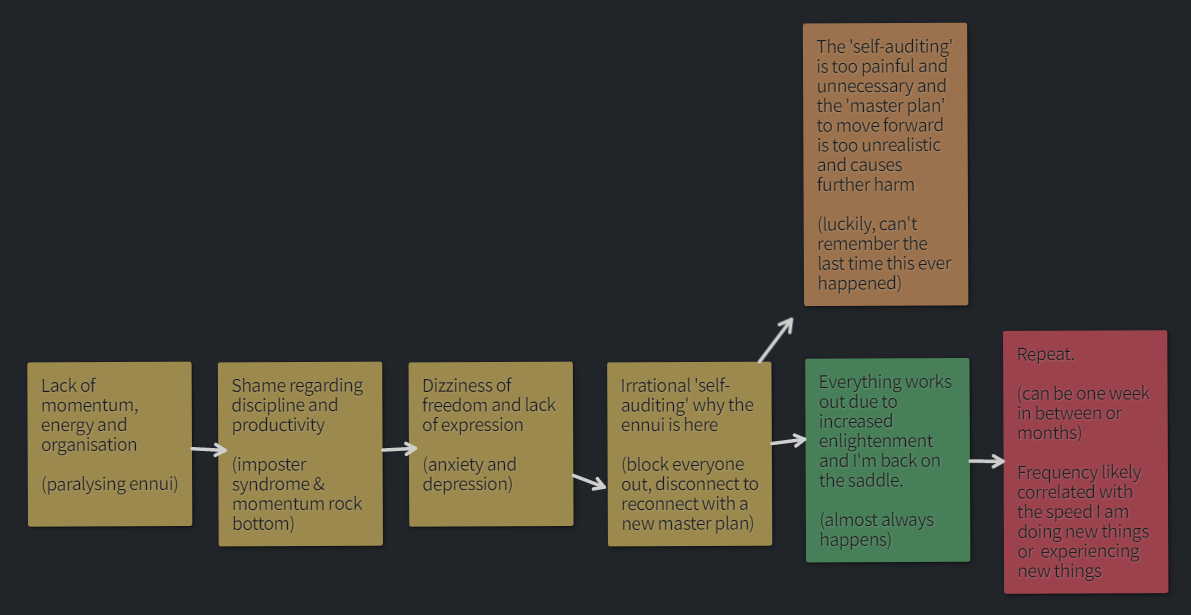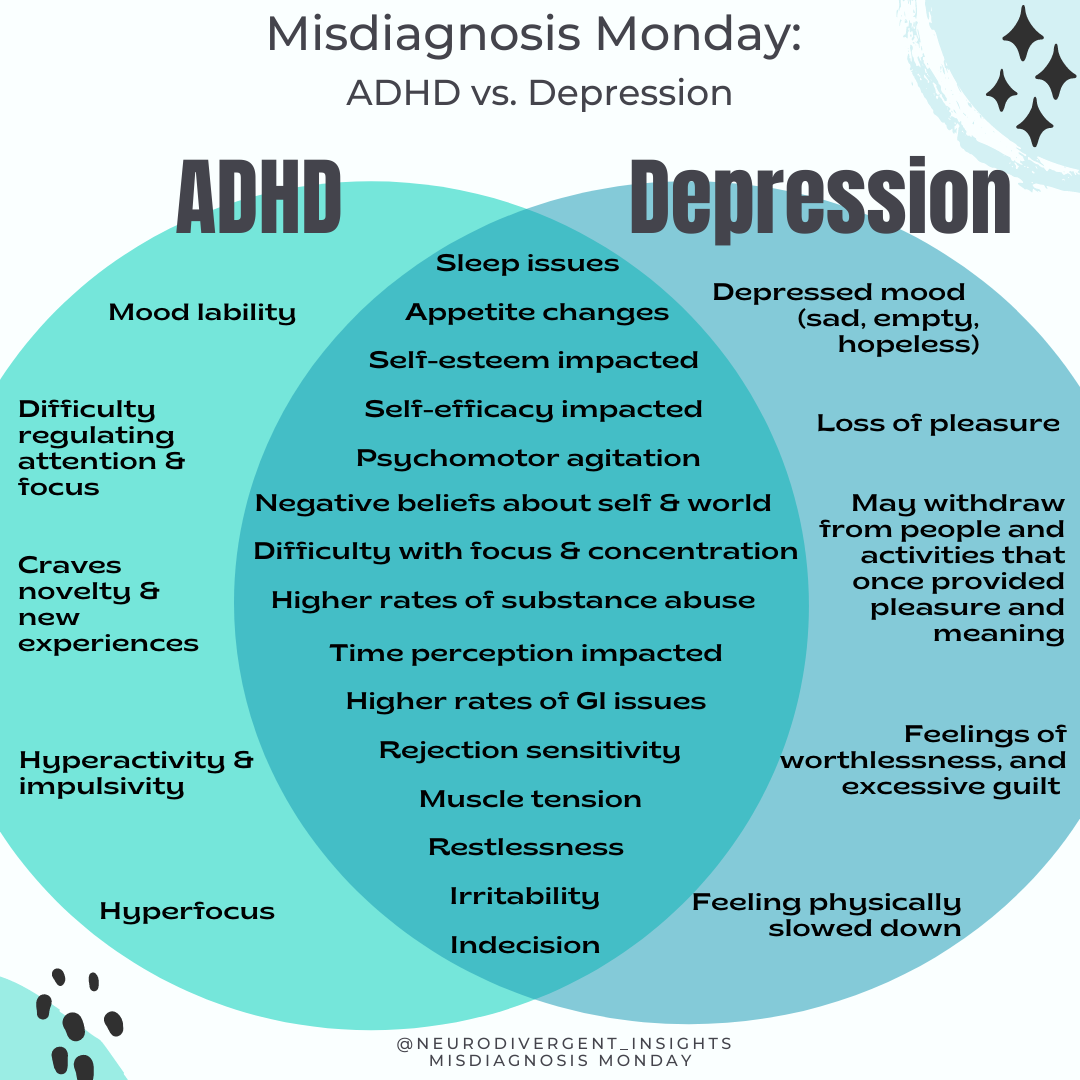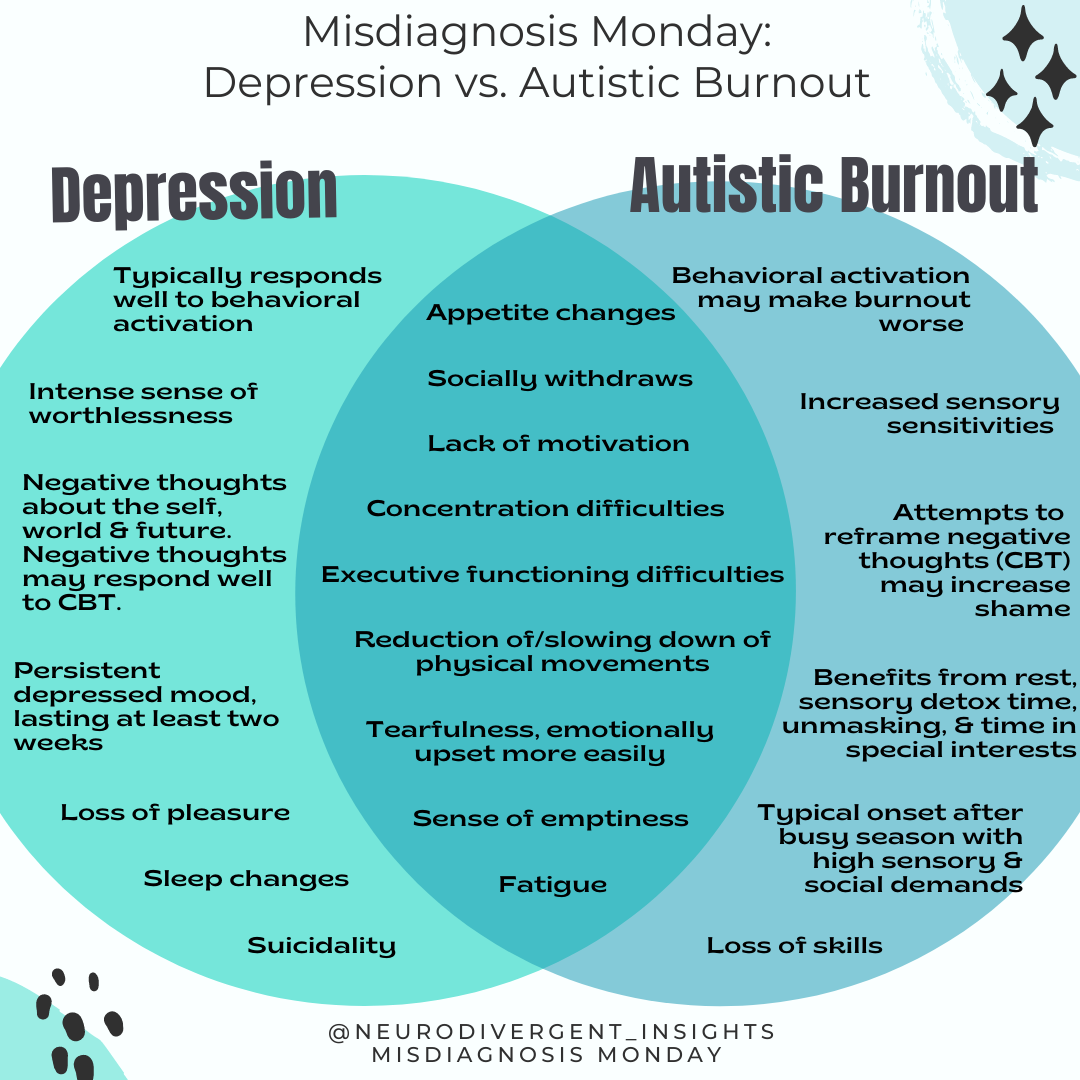Neurodiverse burnout is a state of physical and mental fatigue, heightened stress, and diminished capacity to manage life skills, sensory input, and/or social interactions, which comes from years of being severely overtaxed by the strain of trying to live up to demands that are out of sync with our needs.
What, upon reflection, have I noticed can cause burnout, for me personally?
- Too many ‘hurdles’ to entry with tasks and projects.
- Social conflicts.
- The negative states and/or emotions of my peers.
- Environmental changes.
- Feeling as if I have to be the ‘pack leader’ constantly in social groups where everything from organisational to emotional management is reliant on me.
- Too much pressure on myself.
- Too much importance given to social sources i.e. social media, meetings, comparisons.
- Lack of personal or external acknowledgement for the work I do.
What does burnout actually look like for me?

Burnout is the definition of death. It’s giving up and not wanting to do anything more. Schopenhauer defined life by something that tries to effect it’s environment. It’s change. That’s a living organism.
So if you feel you can’t change your environment you give up. Burnout is learned helplessness because you lose hope in your desired outcome.– Nir Eyal on burnout and ADHD on Steven Bartlett’s Diary of a CEO podcast
How will I attempt to manage this cycle now I am aware of it?
Burnout management
- Organise:
- Create and organise consistent energy and momentum around me that does not rely on my input.
- Administrate:
- Important to not overload my plate and stay on top of my feelings of my ‘now’ and ‘not now’.
- Monitor:
- Continual assessments of the feelings and effects of the plates I have organised to spin.
Burnout recovery
- Responsibility:
- Recognise my signs of burn out, acknowledging it as my current state and accepting that it is fine and part of my process of experiencing and existing.
- Audit:
- Take a look over my circumstances, environment and plates that I am spinning. Discern, diagnose and dictate the next steps by stripping back to the basics based on what really matters, what I enjoy and what my circumstances really require.
- Recover:
- Relax but only if I can do so without feeling bad about it. If I can’t and the reason is superficial: kill it. If I can’t and the reason is reasonable, adjust and align with a usual routine to then move onto purposeful recovery relaxation once the required routine is completed and out of the way.
Burnout’s traditional symptoms and ADHD specific ones I found across the web:
- Feelings of energy depletion or exhaustion.
- Increased mental distance from one’s job, or feelings of negativism or cynicism related to one’s job.
- Reduced professional efficacy.
- Anxiety
- Depression
- Decreased motivation
- Guilt
- Trouble concentrating
- Irritability
- Difficulty regulating emotions
- Low self-esteem
- Challenges at work or school
- You no longer take interest or pleasure in your normal activities and you see allies (like co-workers) as enemies who are burdening you with more and more work.
- You likely withdraw from everything because you believe it’s impossible to get things done.
- ADHD burnout is a specific kind of burnout as “people with ADHD work harder to do the things most people do with little effort.” Imagine yourself on an interactive exercise bicycle – you pedal faster and faster to try to keep up with others, your heart rate hits its peak and you can’t pedal any harder. But, even your best isn’t good enough and you fall behind the standard of others. – David Goodman
- Certain life changes can ignite burnout.
- Other problems specific to people with ADHD also add fuel to burnout. “ADHDers experience something called ‘hyperfocus,’ periods of time in which we are transfixed and fully focused on a subject or project. These periods can last from hours to days and we often neglect taking care of ourselves when we are hyper focused. We don’t eat right, sleep well, etc. This often leads us to burnout more quickly,”
How can you prevent burnout based on what I’ve found across the web?
Main source: https://www.webmd.com/add-adhd/adult-adhd-burnout
- Be mindful of pressure.
- Learn how to relax and not feel bad about it “lets rest” – “No, I must do more”. Don’t feel guilty about taking a breather. People with ADHD spend their whole lives being told that they aren’t trying hard enough. As a result, they often push themselves as hard as possible, Meeks says. “Resting feels ‘lazy,’ a word that has been used against us like a weapon for most of our lives.”
- Know your limits. Some people think they can pile it all on their plate and carry it even though it’s dripping off the plate, Goodman says. You need to face the fact that your expectations sometimes go beyond what you can actually do.
- Prioritise. “You won’t be able to juggle 12 balls at once,” Goodman says. You need to pick six that you can juggle well and the other six need to be put to the side until you have more time for them. Setting priorities is difficult for people with ADHD. “It’s either I need to do it now or if it’s not due yesterday it doesn’t need to be done until tomorrow. The problem is something comes up tomorrow that’s urgent and that’s how things mount up.”
- Just say “no.” People with ADHD often are people pleasers, have a hard time saying no, and overcommit themselves, Meeks says. “Practice saying no and not feeling guilty about it. The people in our lives should be understanding of the need to keep ourselves safe and healthy,” she adds.
- If it’s broken, fix it. If your ADHD symptoms seem out of control, talk to your doctor. You may need to add or change medication or learn better organization and time-management skills. This can help you get through your days with fewer stumbling blocks and more confidence.
What does ADHD and depression look like?

What does depression and autistic burnout look like?
